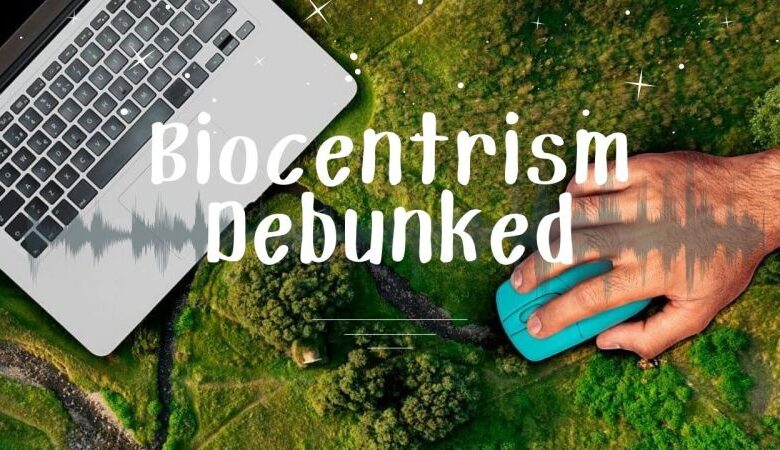Biocentrism, a philosophical perspective that places life at the center of the universe, has long captivated thinkers and scholars alike. It proposes that life, particularly human life, holds a special significance in the grand scheme of existence. However, as with any complex theory, biocentrism has faced its fair share of scrutiny and critique.we delve into the concept of biocentrism, exploring its origins, criticisms, and alternative viewpoints, ultimately challenging the notion of life at the center.
The Origin and Development of Biocentrism
Biocentrism traces its roots back to ancient philosophical traditions that viewed life as inherently valuable and deserving of reverence. However, it wasn’t until the modern era that biocentrism gained traction as a distinct philosophical framework. Scholars such as Albert Schweitzer and Paul Taylor played pivotal roles in shaping and popularizing the concept, advocating for a reevaluation of humanity’s relationship with the natural world.
Critiques of Biocentrism
Despite its appeal, biocentrism has not been immune to criticism. From a scientific perspective, skeptics argue that placing life at the center of the universe lacks empirical evidence and fails to account for the vastness and complexity of the cosmos. Furthermore, ethical and philosophical concerns have been raised regarding the hierarchical implications of biocentric thinking, particularly in its treatment of non-human life forms.
Alternative Perspectives
In response to the limitations of biocentrism, alternative perspectives have emerged, offering nuanced interpretations of humanity’s place in the universe. Anthropocentrism, the belief that humans are the central or most significant entities in existence, stands in contrast to biocentrism’s emphasis on all forms of life. Additionally, ecocentrism and deep ecology advocate for a holistic approach that considers the interconnectedness of all living and non-living entities.
Reevaluating Life at the Center
As we navigate the complexities of existence, it becomes increasingly evident that the notion of life at the center is not a static or singular concept. Rather than positioning humanity as the pinnacle of creation, we are called to reevaluate our relationship with the natural world, acknowledging our interconnectedness with all living beings. By embracing a more inclusive and ecologically conscious worldview, we can cultivate a deeper appreciation for the intricate web of life that sustains us.
Exploring Further
For those intrigued by the concept of biocentrism and eager to delve deeper into its nuances, there are several avenues for exploration. One can engage with scholarly literature that delves into the philosophical underpinnings of biocentrism, examining its historical evolution and contemporary relevance. Additionally, there are online forums and communities where individuals can engage in discussions and debates surrounding biocentrism and related topics, exchanging ideas and insights with like-minded individuals.
Practical Applications
Beyond theoretical discourse, biocentrism also holds practical implications for various aspects of human society. In fields such as environmental ethics and conservation biology, biocentric principles inform decision-making processes and guide efforts to protect and preserve biodiversity. By recognizing the intrinsic value of all life forms, policymakers and conservationists can advocate for policies and practices that promote ecological integrity and ensure the well-being of future generations.
Educational Opportunities
Educating the next generation about biocentrism and its implications is crucial for fostering a more ecologically conscious and sustainable society. Incorporating biocentric principles into school curricula can help cultivate a deeper appreciation for the interconnectedness of all living beings and inspire students to become stewards of the natural world. Through hands-on learning experiences and outdoor education initiatives, educators can empower young minds to explore and engage with the wonders of the natural world.
Continued Debate
As with any philosophical perspective, the debate surrounding biocentrism is likely to continue evolving in the years to come. New discoveries in fields such as evolutionary biology, ecology, and cosmology may challenge existing assumptions and prompt scholars to reevaluate their understanding of life and its place in the universe. By remaining open to diverse perspectives and engaging in respectful dialogue, we can enrich our collective understanding of existence and strive towards a more harmonious relationship with the natural world.
Conclusion
In conclusion, while biocentrism offers a compelling perspective on the significance of life in the universe, it is not without its limitations and critiques. By engaging with alternative viewpoints and reevaluating our understanding of life at the center, we can foster a more holistic and sustainable approach to existence, one that honors the interconnectedness of all living beings.
FAQs (Frequently Asked Questions)
- Is biocentrism a scientific theory?
- Biocentrism is more of a philosophical perspective rather than a scientific theory. While it may draw on scientific principles, its central tenets are often debated within scientific circles.
- How does biocentrism differ from anthropocentrism?
- Biocentrism emphasizes the value of all forms of life, whereas anthropocentrism places humans at the center of the universe, prioritizing human interests above all others.
- What are some ethical concerns associated with biocentrism?
- Critics argue that biocentrism may lead to hierarchical thinking, where certain forms of life are prioritized over others, potentially justifying the exploitation of non-human beings.
- Can biocentrism coexist with other philosophical perspectives?
- While biocentrism offers a unique lens through which to view the world, it can coexist with other perspectives such as ecocentrism and deep ecology, which emphasize the interconnectedness of all living beings.
- How can individuals incorporate biocentric principles into their daily lives?
- Embracing biocentric principles involves recognizing the intrinsic value of all life forms and making conscious choices that prioritize ecological sustainability and respect for the natural world.


Leave a Reply